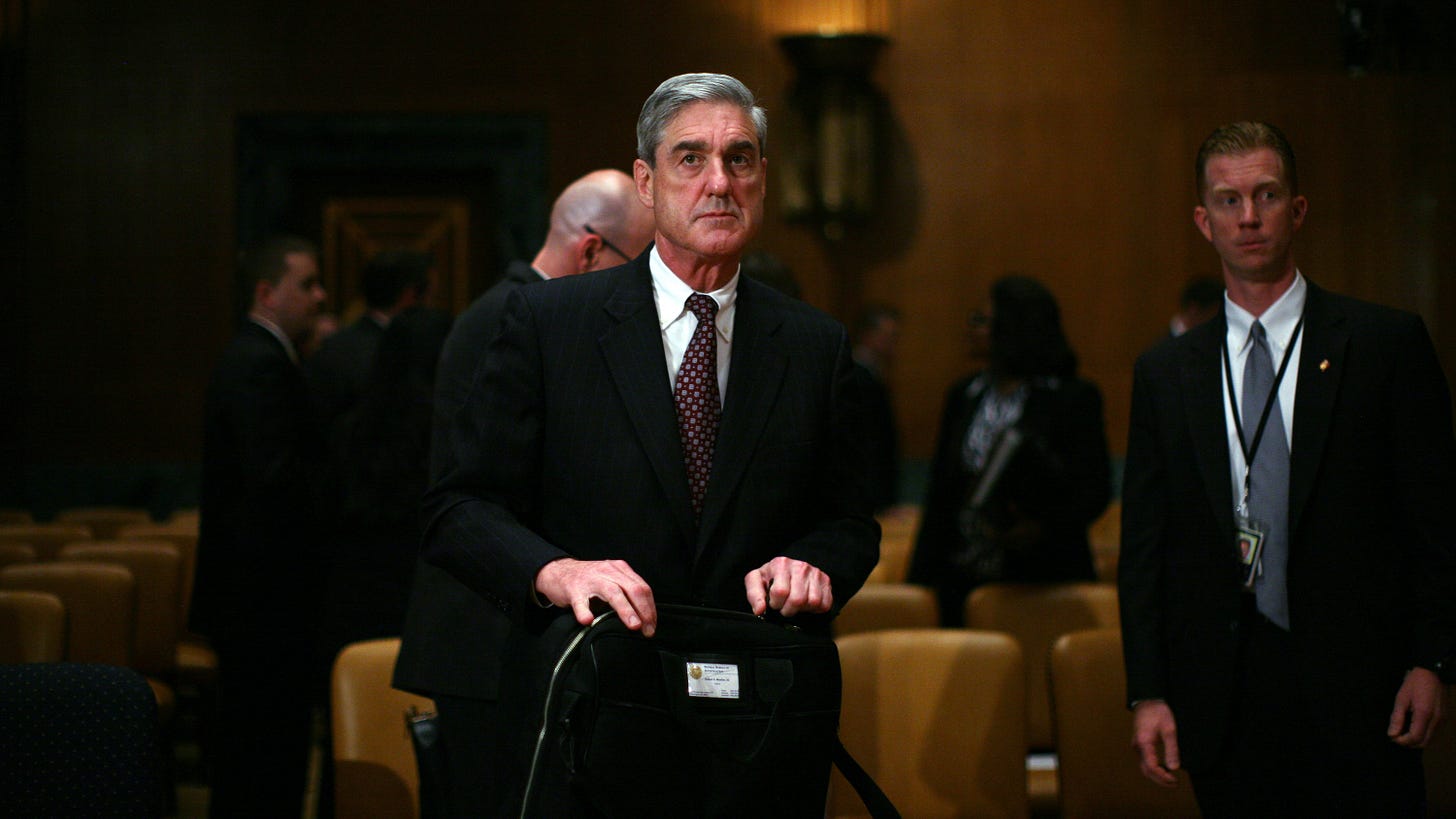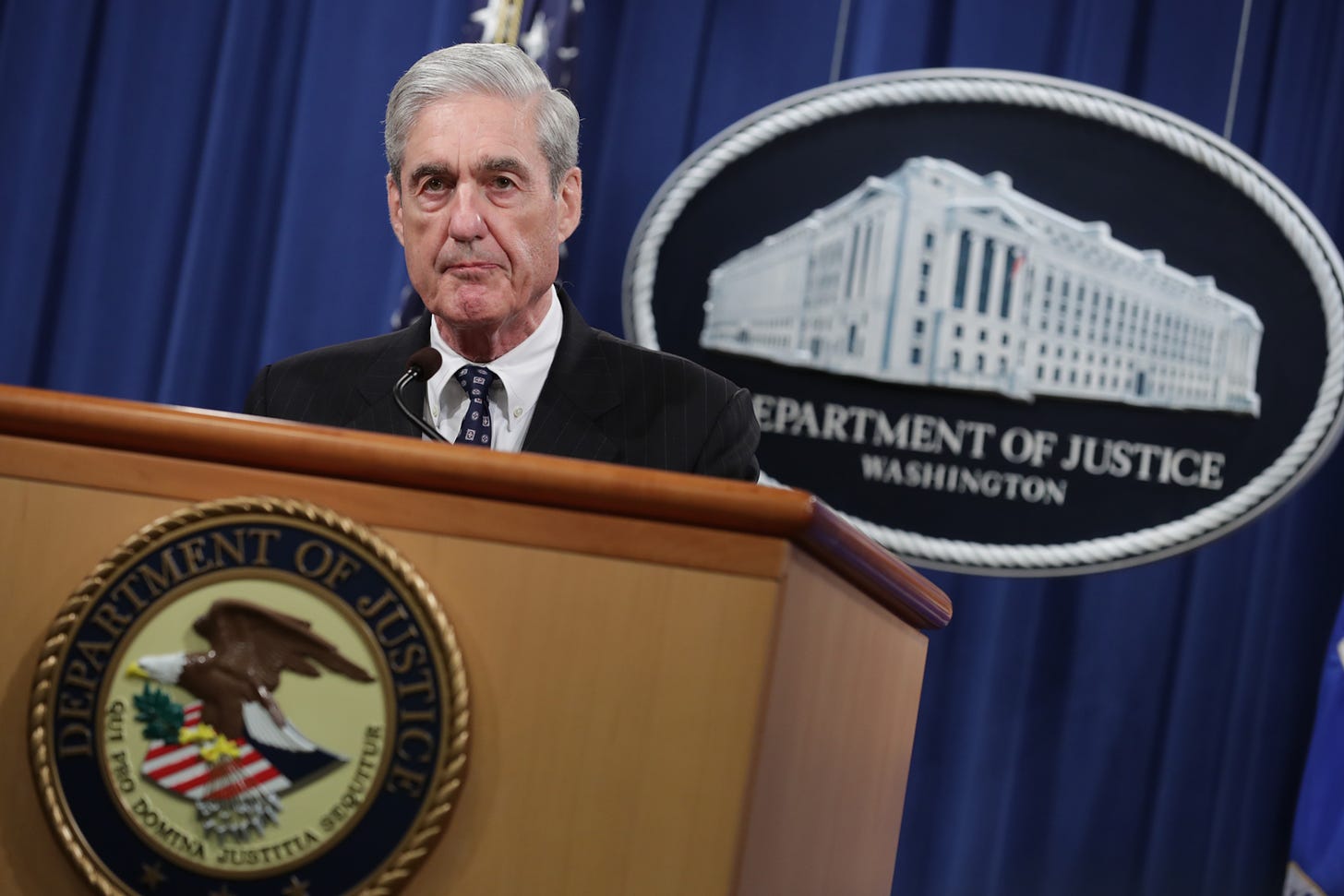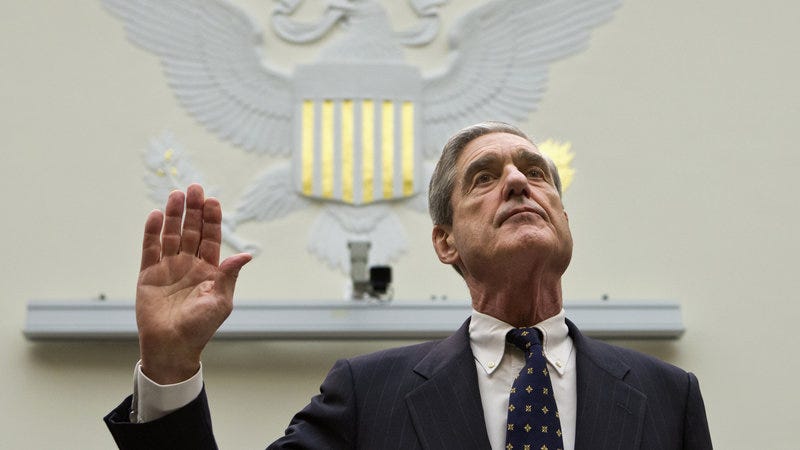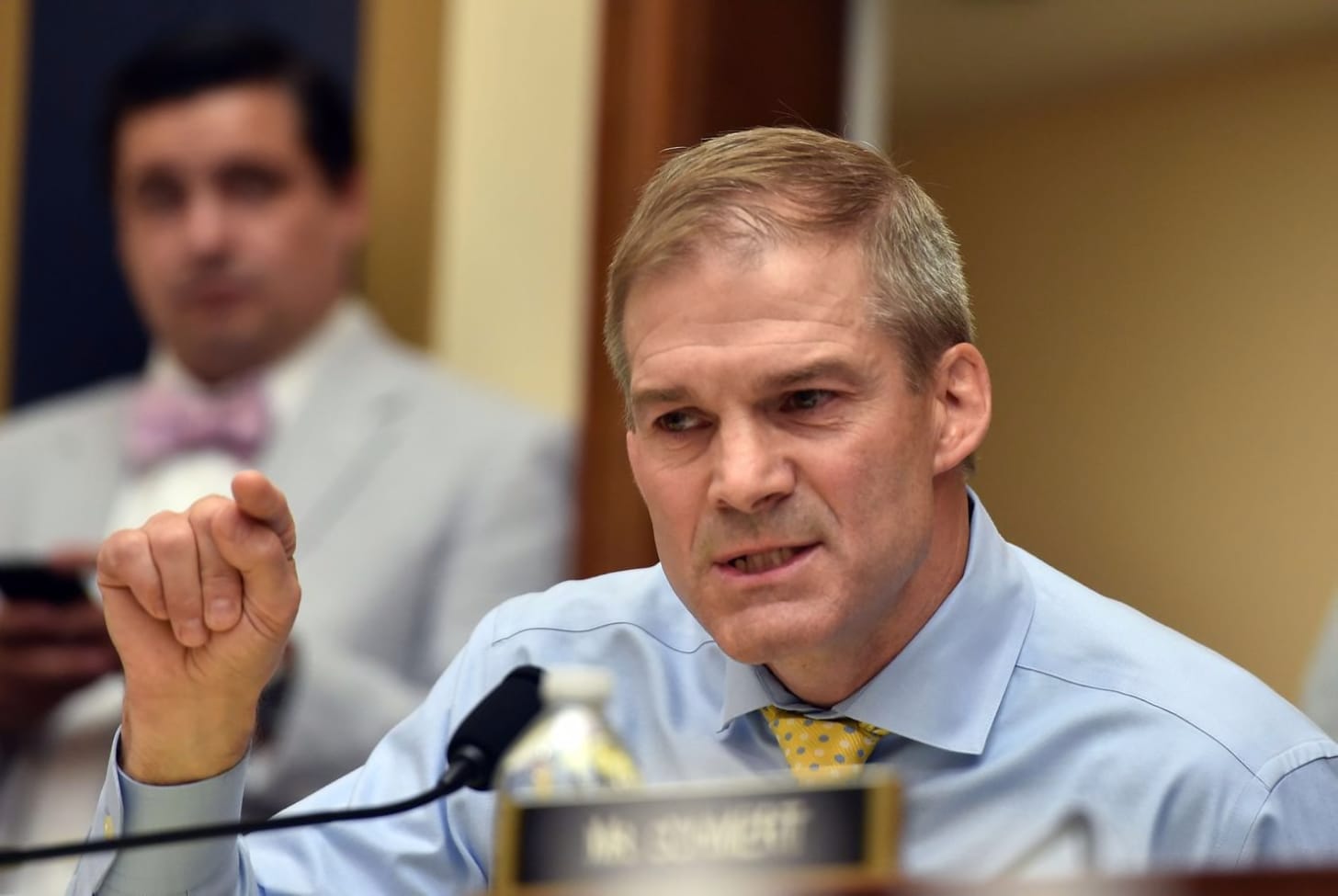What to Expect from Mueller on Wednesday

When we last heard from former Special Counsel Robert Mueller, he was giving a public press conference to basically reiterate his statements laid out in his written report. After weeks of Republicans falsely spinning that Mueller had determined there was no collusion, Mueller re-emphasized his actual conclusion:
"As set forth in the report, if we had had confidence that the president clearly did not commit a crime, we would have said so. We did not, however, make a determination as to whether the president did commit a crime."
Mueller’s report denotes ten specific instances in which Trump may have potentially obstructed justice. But ultimately, the report relies on the premise that the Department of Justice's Office of Legal Counsel's 2000 conclusion, which states that a sitting president can not be charged or indicted with a crime, is persuasive law. Despite the fact that this concept has not actually been tested in the courts, Mueller determined that if it were, this would be the precedent followed based on a very persuasive argument: "a federal criminal accusation against a sitting President would place burdens on the President's capacity to govern and potentially preempt constitutional processes for addressing presidential misconduct."

Ultimately, Mueller is saying there are several instances where he might be able to prove Obstruction of Justice charges, but that the legal standard moving forward does not give him favorable odds in the courts and to press on would be destructive for the stability of the Executive, and ultimately, the country. Given that there is no real legal precedent for this type of thing, Mueller’s position is that the closest thing we have is the DOJ memo setting this standard - game over.
While we are all focused on what Mueller will say about Trump’s criminality, it’s important not to overlook Mueller’s plea to Congress to investigate election interference. Based on his extensive investigation, the Special Counsel concluded that Russia did interfere in the Presidential Election of 2016 and that it’s up to Congress to investigate the true extent. The report itself has hundreds of pages detailing all of the ways in which Russia attempted to sway the election and provides an investigative roadmap for Congress or the courts. At the presser, Mueller ended with, “I will close by re-iterating the central allegation of our indictments, that there were multiple, systematic efforts to interfere in our election. That allegation deserves the attention of every American." But, very little has been done on the Congressional front in terms of investigating our electoral weaknesses and correcting those flaws due to gridlock and an overwhelming focus on Trump.
Where We Are Now
It’s fair to say that Mueller punted on concluding whether or not Trump committed obstruction of justice and Barr’s aggressive commandeering of the situation was detrimental to the process, but Mueller did leave the door open for Congress saying it could “validly regulate the President's exercise of official duties to prohibit actions motivated by a corrupt intent to obstruct justice." The report contains a substantial constitutional analysis about how a congressional move against Trump, toward Impeachment wouldn't undermine his executive power outlined under Article II, the very power that Mueller claims would be jeopardized if he proceeded with charges.

Essentially, Mueller was passing the ball to Congress and giving his legal blessing for Congress to proceed investigating both election interference and impeachment. Unfortunately, he didn’t include an analysis of how this would affect 2020 election results if the Democrats spent the next two years focused on hearings that went nowhere in the Senate. Based on the inaction by both Mueller and Congress, I expect the testimony on Wednesday to be more of the same — everyone looking to someone else to stand up and take the bullet for a process, that if initiated, has a huge potential to just look like more political grandstanding and cost one side the next election.
What Democrats Want
The difficulty here for Democrats is that Mueller is not expected to say anything new. It’s also an issue that leadership has spent the last several months trying to tamp down expectations and quell the public outcry for moving forward on Impeachment. By waiting so long to question Mueller publicly, Congress has essential re-ignited the very thing both sides are trying to move past.

Most Americans haven’t read Mueller’s 400 page report. The reason for this is that it’s a complicated legal analysis written in a style that’s even more difficult to discern. I am a practicing attorney with an aptitude for Constitutional Law and I have had to pull out the old highlighter and break it up piece by piece. The time Mueller did speak to the public for clarification he said nothing substantially new and the complexity of his wording might have caused people to tune out and just focus on regurgitated headlines.
Don’t expect Wednesday to be different. Rep. Schiff (D-NY) has stated that he believes that Mueller speaking to the public directly about his report will compensate for Americans ignoring it, but this is not likely for two reasons: the media has already bullet-pointed everything for anyone interested and Mueller is simply not good at explaining himself to laypeople. It would have been great for Robert Mueller to take questions on his investigation and subsequent report, but that would have been much more effective if it had been done several months ago.

Regardless of my lack of optimism about gleaning anything new or substantial from Wednesday, let’s take a look at the political terrain, chart out the big game and dissect intended plays from both teams on how they intend to dig into to a complicated and lengthy report in just a few hours.
"I got questions for him.” — Rep. Jim Jordan on Mueller testifying
You can expect the House Intelligence Committee to focus on Volume 1 of the Mueller Report which focuses on Russian interference in the 2016 presidential election. The House Judiciary Committee will be focused on Volume 2, specifically the possible instances of obstruction of justice by Trump.

Republicans on the Judiciary Committee (think Jordan, Gaetz and Biggs) have a very specific game plan that includes:
Pinpointing when Mueller knew there was no collusion between the Trump campaign and Russia, and going deep on why he didn't let the public know sooner that there was no real evidence of conspiracy.
Trying to establish that Andrew Weismann wrote most of the Mueller Report and establishing him as “a Clinton guy” based on the fact that Weismann attended Hillary Clinton’s election night party in 2016.
Focusing on anti-Trump sentiment within the F.B.I. agents, specifically Peter Strzok and Lisa Page, and why some texts on their work phones weren't preserved, even though the D.O.J. independent investigation found that political bias did not compromise the F.B.I.'s work.
A GOP source has even told the press that, "Republicans have been prepping for this hearing for weeks,” and some lawmakers have "spent more time on this than they have on anything else."

Meanwhile, Democrats have been desperate for Mueller to testify on his findings for months and most agree that the success of it all will come down to ratings and how many people tune in. Dems are also banking on the power Mueller will have in just reading excerpts from his own report, which might be the first time a lot of Americans are actually hearing them. There is a continued sense of hope that just the presence of Mueller will resurrect the impeachment momentum within the party, which leans heavily toward starting hearings against this president, regardless of futility once things reach the Senate.
"Since most of our constituents in their busy lives haven't had the opportunity to read that report — and it's a pretty dry prosecutorial work product — we want Bob Mueller to bring it to life, to talk about what's in that report," — Rep. Adam Schiff on Face the Nation
What remains clear based on the diverging strategies of both parties in preparation is that Democrats expect the report to speak for itself and propel their argument once voiced by its author. In an opposing strategy, the GOP is playing defense and intending to poke holes in anything Mueller says. This is a pattern that has already been playing out in the media since the report was initially released, and although the dramatics may be amped up for the viewers, it shouldn’t really be anything new fundamentally from either side.
Come Wednesday morning you can be assured of one thing — I will be live-tweeting the events as they unfold live and providing ongoing legal analysis of Mueller’s testimony. So be sure to follow me @girlsreallyrule if you are stuck at work and can’t focus on it, don’t have another one of these in you or if you want to follow along and watch with me. See you then!
If you like this piece and you want to help promote independent journalism from a female perspective, please support my work by clicking the button below to sign up for a free subscription.
Amee Vanderpool writes the “Shero” Newsletter and is an attorney, contributor to Playboy Magazine, analyst for BBC radio and Director of The Inanna Project. She can be reached at avanderpool@gmail.com or follow her on Twitter @girlsreallyrule.



